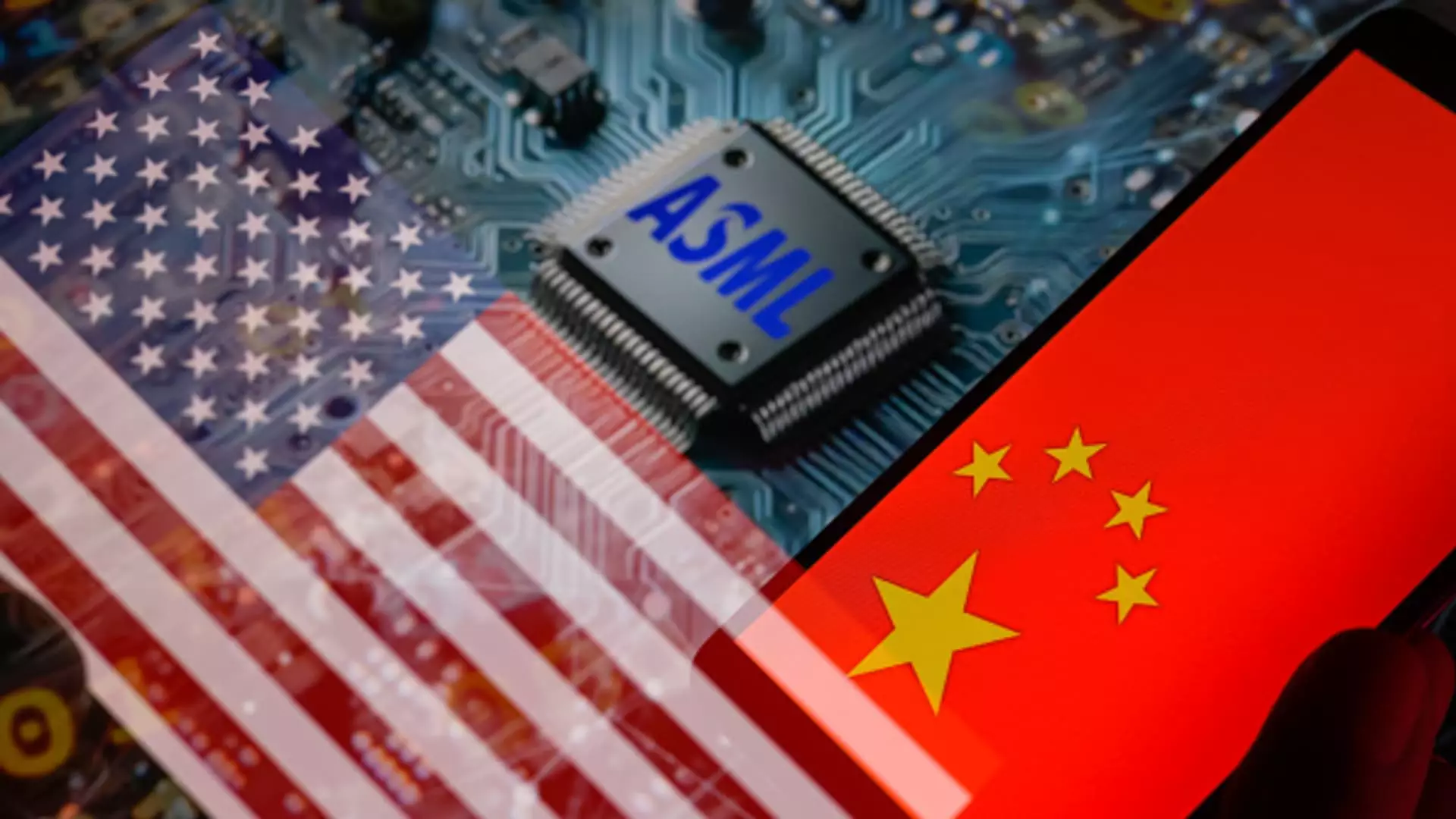In a notable development within the semiconductor sector, shares of prominent semiconductor equipment firms experienced a significant uptick this past Thursday. This surge followed reports suggesting that the U.S. government may be contemplating a set of new sanctions against China’s chip industry, albeit with less severity than previous proposals. The early trading session in Europe saw ASML, a leading Dutch semiconductor firm, soaring approximately 3.6%, while its Japanese counterpart, Tokyo Electron, surged over 6%. This positive market movement reflects investor optimism amidst ongoing geopolitical tensions impacting the semiconductor supply chain.
U.S. Government’s Approach to Chinese Technology
According to Bloomberg’s coverage, the U.S. is deliberating additional measures to limit the sale of semiconductor manufacturing equipment and AI memory chips to China. However, this potential regulatory shift appears to deviate from earlier, more stringent sanctions that had raised alarms within the industry. Notably, the U.S. Commerce Department’s Bureau of Industry has yet to provide a formal response to inquiries regarding the reported plans, underscoring the uncertain nature of these developments.
Among the noteworthy outcomes of this more measured approach is the consideration to exclude specific Chinese firms from an export blacklist known as the Entity List. Specifically, it appears that ChangXin Memory Technologies, a memory manufacturer and a competitor to major players like SK Hynix and Samsung, will not be targeted. This leniency could create a more favorable landscape for Western companies engaged in semiconductor manufacturing, as it may prevent a decline in market opportunities.
Potential Revenue Implications for ASML
Analysts from Jefferies have expressed cautious optimism about ASML’s financial prospects in the wake of these sanctions discussions. Previously, the company had projected a steep 30% revenue decline from its Chinese operations next year. However, with the exclusion of ChangXin Memory Technologies from the U.S. blacklist, there is potential for ASML’s sales to remain more resilient than initially anticipated. This could mitigate some impacts stemming from U.S.-China technological tensions and allow for steadier revenue streams.
ASML’s pivotal role in the global semiconductor ecosystem cannot be overstated; the Dutch company is integral to manufacturing advanced semiconductors due to its cutting-edge lithography machines. These machines are essential for semiconductor fabrication facilities, known as “fabs,” including Taiwan’s TSMC and China’s SMIC. However, the geopolitical landscape poses several challenges for ASML, as newer restrictions have made it increasingly difficult to export both its advanced and less sophisticated machinery to China.
The potential introduction of U.S. sanctions poses not only challenges but also opportunities for semiconductor equipment manufacturers, particularly those like ASML. Any adverse measures targeting the semiconductor manufacturing sector could precipitate negative consequences for demand, thereby affecting ASML’s pricing power and sales in critical markets. Conversely, the adjustments being considered could preserve more favorable trading conditions for ASML and similar international firms. Ultimately, the ongoing U.S.-China technology rivalry will continue to shape the semiconductor landscape, requiring all stakeholders to stay vigilant and adaptable in an ever-evolving global market.


Leave a Reply